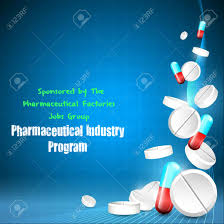
Overview of Careers in the Pharmaceutical Industry and pharma jobs
pharma jobs Pharmaceutical career jobs run the gamut—clinical trials to sales, regulatory to Pharma jobs production. Pharma jobs With robust worldwide demand, long-term expansion pharma jobs, and great pay, pharma jobs is among the strongest and most satisfying fields to be a part of pharma jobs https://bestworldjob.com.
Pharma jobs Whether a graduate, scientist, or seasoned pro, pharma jobs this guide simplifies the leading positions, needed skills, and ways to secure your next pharma job.
User Account Features and Job Search Functionality
All pharma job sites provide user accounts in which you can save your jobs, upload your CV, and receive tailored alerts. Standard features include:
- Personalized job notifications
- Resume and application monitoring
- Stored job searches
- Career advice and reminders
- Simple one-click application
Ensure that your profile is current to receive the most appropriate career recommendations.
Important Departments and Career Roles in Pharma jobs
Clinical Research in Pharma jobs
Assists in creating new medicines through human trials. Jobs vary from tracking clinical sites to managing global studies.

Typical roles:
- Clinical Research Associate (CRA)
- Clinical Trial Assistant (CTA)
- Clinical Project Manager
Requisite skills:
- Knowledge of GCP, detail orientation, travel ability
Regulatory Affairs Pharma jobs
Ensures products comply with legal and safety standards to present to regulatory authorities such as the FDA, EMA, and MHRA.
Shared roles:
- Regulatory Affairs Associate
- Submission Coordinator
- Labeling Specialist
Skills required:
- Documentation, compliance, knowledge of global regulations
Quality Assurance (QA) & Quality Control (QC)
Concentrating on quality standards, audit procedures, and testing procedures to uphold product safety and consistency.
Shared roles:
- QA Specialist
- QC Analyst
- GMP Auditor
Skills required:
- GMP experience, readiness for inspections, focus on technical detail

Pharmacovigilance (Drug Safety)
Responsible for monitoring, assessing, and reporting adverse drug reactions and ensuring continuous product safety.
Typical roles:
- PV Associate
- Safety Data Coordinator
- Medical Reviewer
Required skills:
- Knowledge of MedDRA, Argus, safety regulations, and medical terminology
Medical Affairs Pharma jobs
Serves as a liaison between clinical science and commercial operations. Provides scientific support to internal and external customers.
Typical roles:
- Medical Science Liaison (MSL)
- Medical Advisor
- Scientific Communications Lead
Required skills:
- Strong scientific foundation, PhD or PharmD preferred, communication skills
Pharma Sales and Marketing for Pharma jobs
Accountable for product positioning, brand name, sales tactics, and physician interaction.
Shared roles:
- Sales Rep
- Brand/Product Manager
- Market Access Manager
Skills required:
- Business insight, communication skills, therapeutic area knowledge
Manufacturing and Supply Chain
Manages mass production, packing, and distribution of medicines worldwide.
Shared roles:
- Manufacturing Technician
- Process Engineer
- Supply Chain Planner
Skills required:
- Process design, GMP, supply chain experience
Data Science and Bioinformatics
As AI and machine learning gain traction, data-focused careers are increasing rapidly in pharma.
Shared roles:
- Biostatistician
- Data Scientist
- Real-World Evidence Analyst
Skills required:
- SAS, R, Python, statistical modeling, knowledge of clinical data

Recommended Posts and Expert Insights for Pharma jobs
Top 10 Most Lucrative Pharma Careers in 2025
Jobs such as MSLs, Clinical Directors, and Regulatory Managers are paying premium salaries as the sector expands.
The Role of Artificial Intelligence in Contemporary Pharmaceutical Careers
Artificial intelligence is revolutionizing research, predictive analytics, patient engagement, and trial design—opening up fascinating tech-based jobs.
Breaking into Pharmaceutical Sales
Tips on making the move from general sales to regulated pharma sales, such as certifications, communication, and product knowledge.
Day in the Life: Pharmaceutical Account Manager
Account managers handle high-revenue relationships with hospitals and healthcare systems—learn the scope, challenges, and rewards.
Subscribe for Job Alerts and Industry News for Pharma jobs
Get updated on new jobs, industry trends, and exclusive hiring events by subscribing to pharma career sites. Subscribing benefits include:
- Weekly job updates specific to your experience
- CV and cover letter advice
- Access to career webinars and newsletters
- Early notification of exclusive opportunities
Jobs by Category in Pharma jobs
Discover pharma career opportunities by field of expertise:
- Clinical Research
- Pharmacovigilance
- Regulatory Affairs
- Manufacturing & Operations
- QA/QC and Compliance
- Sales & Marketing
- Medical Affairs
- Data Science & Digital Health
- Graduate & Internship Opportunities
Also search by type of job:
- Full-Time / Permanent
- Contract / Freelance
- Remote / Hybrid
- Entry-Level / Experienced
Top Employers in the Pharmaceutical Industry
The pharmaceutical sector is driven by global leaders and up-and-coming biotech companies. Some of the largest employers are:
- Pfizer
- AstraZeneca
- Roche
- Johnson & Johnson
- Sanofi
- Novartis
- GSK
- Takeda
- Merck
- ICON, PPD, Labcorp (Contract Research Organizations)
These companies offer international mobility, strong benefits, and career advancement across functions.
Tips for Getting a Job in Pharma

1. Customize Your Resume
Highlight applicable skills: GCP, GMP, software tools (e.g., Medidata, SAS), and certifications. Keep it brief and results-focused.
2. Create an Effective Cover Letter
Tailor it to the job. Demonstrate your knowledge of the company and discuss how your experience matches the job.
3. Practice Industry-Specific Interviews
Prepare for questions on compliance, clinical operations, adverse event reporting, or drug development. Use the STAR method to organize responses.
4. Emphasize Certifications
Certifications can make your resume stand out. Examples include:
- GCP or GMP compliance certificates
- Regulatory Affairs Certification (RAC)
- PMP (Project Management Professional)
- SAS programming credentials
- DIA or pharma safety training
5. Network Smartly
Utilize platforms like LinkedIn and participate in pharma webinars, conferences, or virtual career fairs. Referrals tend to secure interviews faster than cold applicationshttps://www.glassdoor.com.
Education and Entry-Level Opportunities
It is required for most jobs to have at least a bachelor’s degree, usually in life sciences, chemistry, pharmacy, or biotechnology. Entry-level roles you may consider are:
- Clinical Trial Assistant
- Drug Safety Coordinator
- QA/QC Analyst
- Sales Trainee or Intern
- Regulatory Assistant
If you have an MD, PharmD, or PhD, you can target advanced positions such as:
- MSL
- Medical Advisor
- R&D Scientist
- Scientific Affairs Specialist
Career Progression in Pharma jobs
Pharma career pathways are structured and promotion-oriented. Here’s how you can grow within the industry:
- Clinical Trial Assistant → CRA → Clinical Trial Manager → Director of Clinical Ops
- QA Technician → QA Associate → QA Manager → Director of Quality
- Sales Rep → Area Manager → Product Manager → Commercial Director
- PV Associate → PV Scientist → Global Safety Lead
Most companies offer continuous training, leadership programs, and upskilling to support career development.
Trends Defining Pharma Careers in 2025 and Beyond
- Personalized medicine and gene therapies
- Application of AI in research and clinical design
- Real-world evidence and predictive modeling
- Global trial expansion and remote monitoring
- Digital health apps and wearables for drug tracking
These trends are generating demand for adaptable, technology-savvy, and globally orientated professionals.

Final Thoughts: Build Your Future in Pharma
Pharma offers high-impact, well-paying roles with long-term development potential. Whether your path is in the lab, the clinic, the office, or the field—there’s a place for your skills in this vital industry.
Start by building your profile, uploading your CV, and applying to roles that match your strengths. Stay informed, keep learning, and adapt with the industry’s changes. Your next role in pharma could be the career opportunity you’vehttps://www.intelycare.comFrequently Asked Questions (FAQs) About Pharma Jobs
1. What is the qualification for pharma jobs?
Most pharmaceutical jobs require at least a bachelor’s degree in life sciences, pharmacy, chemistry, biotechnology, or a related discipline. For senior or specialized roles such as Medical Science Liaison or Regulatory Affairs Manager, a PhD, PharmD, or MD is often preferred.
2. Is it possible to join pharma without experience?
Yes. There are several entry-level positions suitable for recent graduates, including:
- Clinical Trial Assistant
- QA Technician
- Pharmacovigilance Coordinator
- Sales Trainee
Additionally, many companies offer internships and graduate schemes to help newcomers build experience.
3. What are the highest-paying jobs in the pharma industry?
Some of the best-paying pharma roles include:
- Medical Science Liaison (MSL)
- Regulatory Affairs Director
- Clinical Operations Manager
- Biostatistician / Data Scientist
- Market Access Director
Salaries vary based on experience, location, and the hiring company.
4. What are the biggest departments in pharmaceutical companies?
The major departments typically include:
- Clinical Research
- Regulatory Affairs
- Pharmacovigilance (Drug Safety)
- Quality Assurance / Quality Control (QA/QC)
- Medical Affairs
- Sales & Marketing
- Manufacturing & Supply Chain
- Data Science and Bioinformatics
5. How do I get into pharmaceutical sales?
To enter pharmaceutical sales, you usually need:
- A bachelor’s degree (in life sciences or business preferred)
- Strong communication and interpersonal skills
- Some sales experience, even from other industries
- Certifications or therapeutic knowledge may be required for specific products
6. Is there remote working in pharma?
Yes. Remote and hybrid roles are increasingly common, especially in:
- Clinical data management
- Regulatory writing
- Pharmacovigilance
- Scientific communications
- Data science and AI-driven research
7. Do I need certifications to get a job in the industry?
Not always required, but certifications can boost your profile. Common examples include:
- GCP (Good Clinical Practice)
- GMP (Good Manufacturing Practice)
- RAC (Regulatory Affairs Certification)
- PMP (Project Management Professional)
- SAS/SQL certifications for data roles
8. What are the in-demand skills in the pharma industry?
Key skills currently in demand include:
- Regulatory compliance (FDA, EMA, MHRA knowledge)
- Clinical trial coordination
- Adverse event reporting / Pharmacovigilance
- Data analysis using tools like SAS, R, or Python
- Scientific writing and communication
- AI and machine learning (especially for R&D and data science)
9. Which are the leading employers in pharma?
Top pharmaceutical employers globally include:
- Pfizer
- Roche
- Johnson & Johnson
- AstraZeneca
- Novartis
- GSK
- Sanofi
- Takeda
- ICON, PPD, Labcorp (CROs – Contract Research Organizations)
10. How can I develop my career in the pharmaceutical industry?
Career progression in pharma typically involves:
- Gaining hands-on experience
- Earning advanced degrees or certifications
- Transitioning to specialist or leadership roles
- Active networking within the industry
- Attending conferences, webinars, and training programs
11. What are Contract Research Organizations (CROs), and should I work there?
CROs are firms hired by pharmaceutical companies to conduct clinical trials, data analysis, and monitoring. Working at a CRO offers:
- Broad exposure to diverse projects
- Faster career growth for entry-level professionals
- Excellent learning and networking opportunities
12. Is the pharmaceutical industry a stable career choice?
Absolutely. Pharma is known for:
- Long-term job stability
- Global demand for professionals
- Innovation-driven growth
- Consistent need for scientific and regulatory expertise
13. Are graduate schemes or internships in pharma available?
Yes. Many global pharma firms offer:
- Graduate development programs
- Summer internships
These are ideal for gaining experience in: - Clinical trials
- Medical writing
- Regulatory affairs
- Drug safety
- Commercial and marketing roles
14. How vital is networking within the pharma employment market?
Networking is critical for career growth. It helps you:
- Learn about hidden job opportunities
- Receive referrals
- Stay informed on industry changes
- Build professional relationships
Use platforms like LinkedIn, career fairs, industry events, and alumni networks to build connections.
15. How do I search for pharma jobs online?
Popular online job portals for pharma include:
- PharmiWeb.jobs
- Indeed
- LinkedIn Jobs
- Glassdoor
- BioSpace
- EPM Scientific
- Company career pages (e.g., GSK Careers, Pfizer Jobs)
Would you like this formatted into a PDF, interactive webpage, or print-ready brochure? Let me know, and I can tailor it to your platform or audience (graduates, researchers, medical professionals, etc.